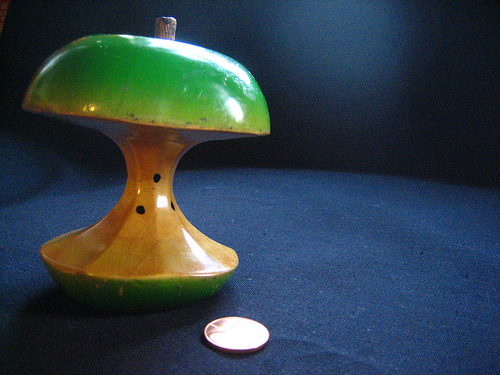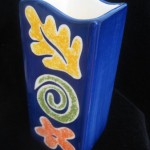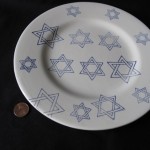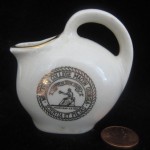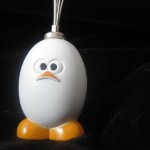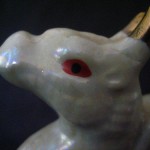[The auction for this Significant Object, with story by Heidi Julavits, has ended. Original price: $1.00. Final price: $102.50. This is part five of a five-story teamup with the literary magazine The Believer. Proceeds from this auction go to Girls Write Now.]
According to my wife I am a willful misunderstander, but regarding this tendency of mine I understand her feelings too well.
The daughter of dour pragmatists who prefaced many a conversation with the phrase, “In the wake of Rorty,” my wife initially mistook me as a source of peculiar brightness. One day, however, I noticed that my wife, after weeks of inexplicable bleeding, had tired of me. I took her to see a specialist who diagnosed her with a melancholy cervix — his beautiful Chilean way (the specialist was Chilean) of conveying to us that we would have no children.
I’m sorry your cervix is melancholy, I told her, rubbing her shoulders insincerely as she wept, because I had never wanted to have children with her. But in fact, she claimed, the specialist had told her that she was dying, an interpretation of recent events that I frankly disbelieved.
Soon she’d stopped eating (the smell of food, she claimed, made her ill), as if to prove that she was right and I wrong regarding certain things. So I started to carve, in our garage, from pieces of oak left by the former owner, a so-called neoclassical orthodontist who whittled, in his spare time, the many sets of wooden teeth he’d left behind on crooked shelves, her favorite fruit. I carved whole pears and whole oranges, but found that I hated to see, at the end of a breakfast, say, my plate empty and hers full. I returned to the workshop and carved wood into the shape of already-eaten food; halfway through our meals I would exchange the uneaten food for the already-eaten food, and I would congratulate her on her excellent appetite, and this would make her cry at how well I understood her.
But one afternoon, as I was exchanging an uneaten apple for an already-eaten apple, she took the already-eaten apple off her plate and threw it into the yard.
I retrieved the already-eaten apple.
“You are a tiresome fool,” she said, and threw the already-eaten apple into the yard.
I fetched and she threw, we carried on like this (the exercise, I could see, did her good) until finally I left the already-eaten apple in the yard, because one must relent to the livid pessimism of a so-called dying loved one; to do otherwise, or so I believe she believed, as she lay face-down in the soft grass, was to deny her this last skeptical foothold on life.
Soon it was fall, and then winter. In spring, a tree began to sprout, not far from the place where my wife had thrown the already-eaten apple. I desired to drag her out to the yard and say to her, lovingly of course, “Who is the fool now? Who, now, is the fool?” Unfortunately come spring my wife was dead. Alive she would have scoffed at the idea of a tree sprouted from a wooden apple, because she had not yet won the battle we were apparently fighting to the death. But I knew that now she could allow herself to see things from my perspective, that dead trees beget live ones, and wooden apple cores, if you hold them to your ear like a shell, contain the reassuring echo of a human voice that does not believe in you.
